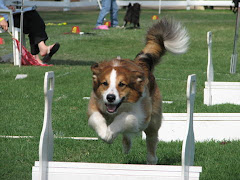Well! I have never heard of these two tools before. They were certainly not available when I was a media generalist in the public schools 9 years ago... They are absolutely wonderful.
How might the RPC and Teacher Guide help you to help students plan and manage research projects?
This awesome tool gives you a comprehensive outline for about every type of assignment that would come up, along with so many helps and links to aid you. It may not work for EVERY type of assignment, but its potential for academic application is tremendous! PLUS, you can even choose to get email reminders - or print them out if you prefer. This would be great help for students, as they always seem to be checking their email accounts ;-) I wish I had had something like this to use with my ninth graders when I was teaching media classes 9-10 years ago. The site is amazing. It is especially great for students that love to work online - no need to try and organize or keep "pieces of paper". And yet, if you like to read your stuff offline, you have the option to print every and anything out, too.
I went under "Step 2 - Gather", then, "How will you give credit to your sources?", and found a link to "The Citation Machine" - what an amazing tool and wonderful help. The student hardly needs to even think :-) The Teacher Guide is great too, full of wonderful tips and helps to get the teacher motivated and organized. I think this would work well to introduce right away when beginning a class - such as our Research Writing Class that is required of all students before they graduate from our college. Students come with such a variety of backgrounds regarding what they have had available at their high schools, and they of course also vary tremendously in their personality as to their ability and desire to organize their studies. These tools would be a huge help in putting everyone on equal ground. I would probably go over each step with the students as they go along, and do an overview the first week, so they know about it. The most WONDERFUL thing, in my opinion, is that it helps teach you to be self-sufficient and responsible for your own work ~ which is one of the tasks of education :-)



